Channel-wise Topology Refinement Graph Convolution for Skeleton-Based Action Recognition
1, Propose a channel-wise topology (different channel have different topology) refinement graph convolution which dynamically models channel-wise topologies in a refinement approach, leading to flexible and effective correlation modeling;
2, Mathematically unify the form of existing graph convolutions in skeleton-based action recognition and find that CTR-GC relaxes constraints of other graph convolutions, providing more powerful graph modeling capability;
3, Get SOTA results.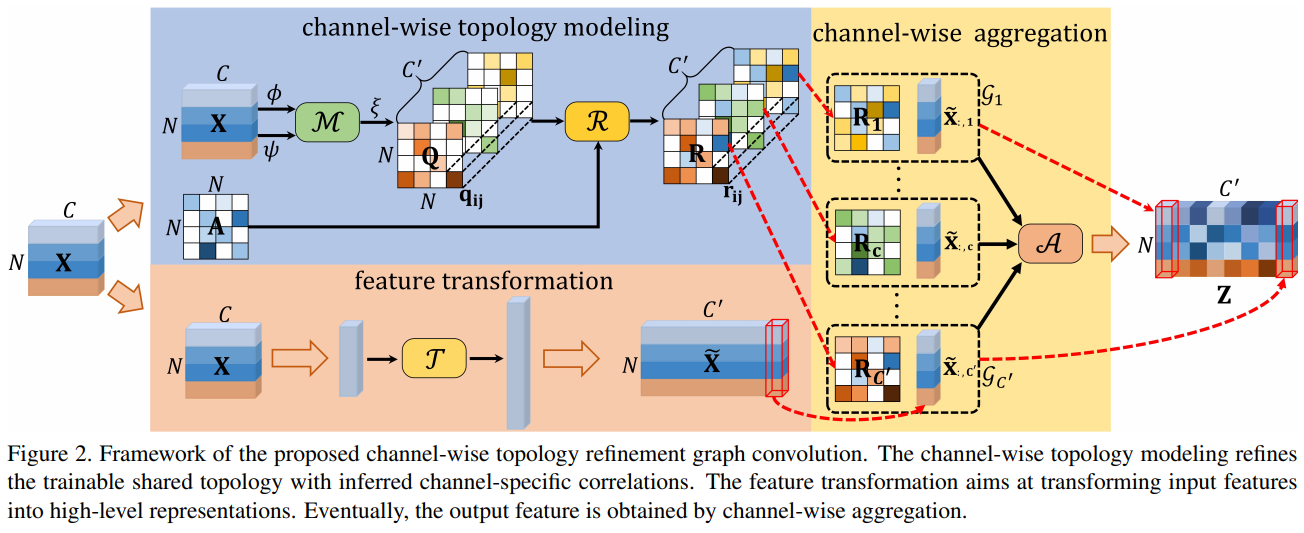
We first transform input features into high-level features, then dynamically infer channel-wise topologies to capture pairwise correlations between input sample’s joints under different types of motion features, and aggregate features in each channel with corresponding topology to get the final output.
CTR-GC contains three parts: (1) Feature transformation which is done by transformation function
; (2) Channel-wise topology modeling which consists of correlation modeling function
and refinement function
; (3) Channel-wise aggregation which is completed by aggregation function
.
对于 channel-wise 的 topology 作者通过节点之间的 channel-wise correlations 来进行构建(topology 其实就是表示节点之间的关联,所以这种方法非常符合常理):

 (einsum 实现)
(einsum 实现)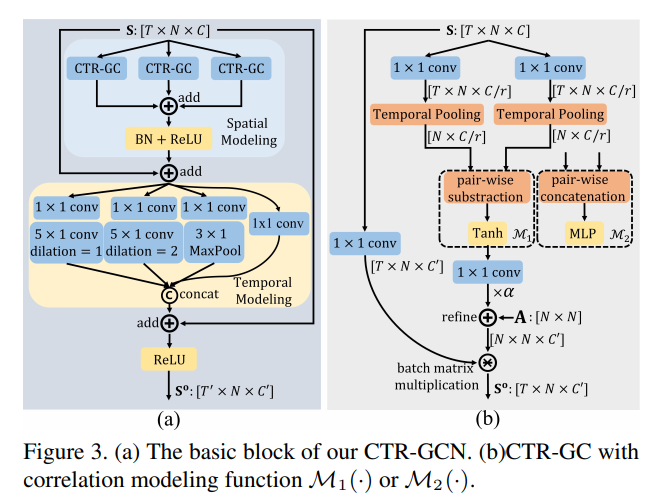
值得注意的时,在时间域进行操作时,采用了 Multi-Scale.
Experiment results
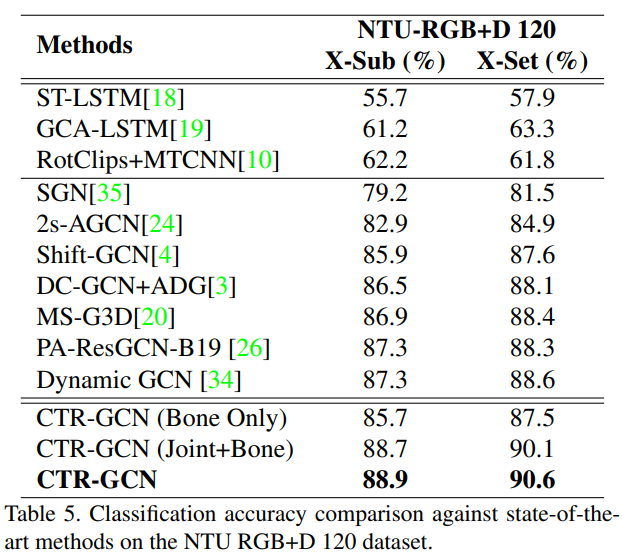
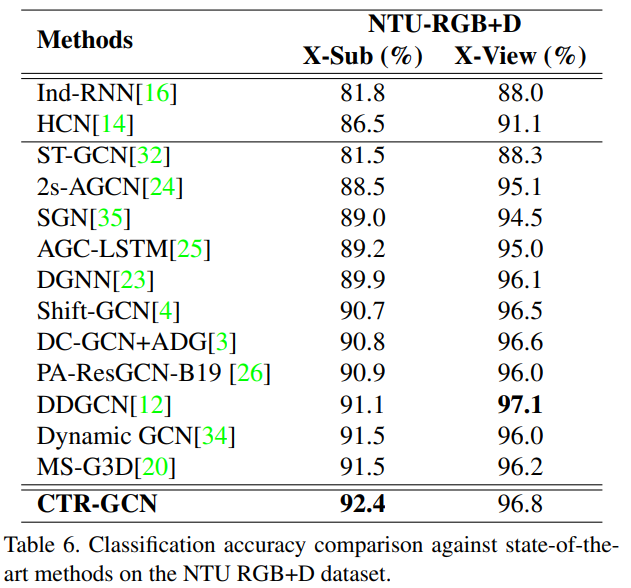
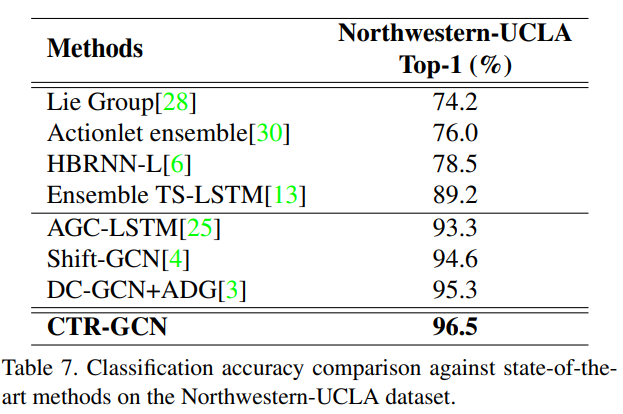
UCLA dataset? 之前没有听说过。


